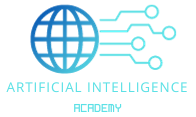Description
“AI Ethics and Responsible AI” is a course focusing on the ethical considerations and responsible practices in the development and deployment of artificial intelligence (AI) systems. The course covers various topics related to AI ethics, bias, fairness, privacy, security, and responsible AI strategies and frameworks.
The course begins by examining the ethical considerations in AI development and deployment. Participants will explore the ethical challenges that arise when designing and implementing AI systems. They will learn about the potential social, economic, and legal impacts of AI technologies and the importance of considering ethical principles in AI development.
Bias and fairness in AI systems are also covered in the course. Participants will learn about the sources of bias in AI algorithms and the potential consequences of biased AI systems. They will explore techniques and approaches for mitigating bias and promoting fairness, such as data preprocessing, algorithmic transparency, and evaluation methods.
The course addresses the privacy and security implications of AI as well. Participants will gain an understanding of the privacy risks associated with AI systems, including data collection, storage, and usage. They will explore privacy-enhancing techniques and strategies to protect sensitive information. Additionally, the course covers security considerations, addressing potential vulnerabilities and threats in AI systems.
Responsible AI strategies and frameworks are a key focus of the course. Participants will learn about various approaches and frameworks for developing and deploying AI systems in an ethical and responsible manner. They will explore topics such as exploitability and interpretability of AI models, accountability in AI decision-making, and the role of governance and regulations in ensuring responsible AI practices.
The target audience for this course is individuals involved in AI development, policy-making, and decision-making, with a specific focus on ethical and responsible AI practices. This includes AI engineers, data scientists, policymakers, project managers, and other professionals working in AI-related fields.
By the end of the course, participants should have a solid understanding of the ethical considerations and responsible practices in AI development and deployment. They will be equipped with the knowledge and tools necessary to identify and address ethical challenges, mitigate bias, protect privacy and security, and implement responsible AI strategies and frameworks. The course aims to empower participants to contribute to the development and adoption of AI technologies in a way that aligns with ethical values and societal well-being. Join AI Academy now!






Reviews
There are no reviews yet.